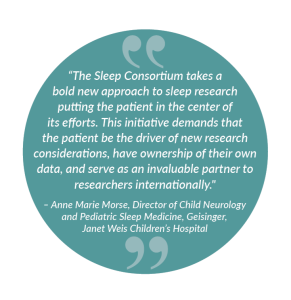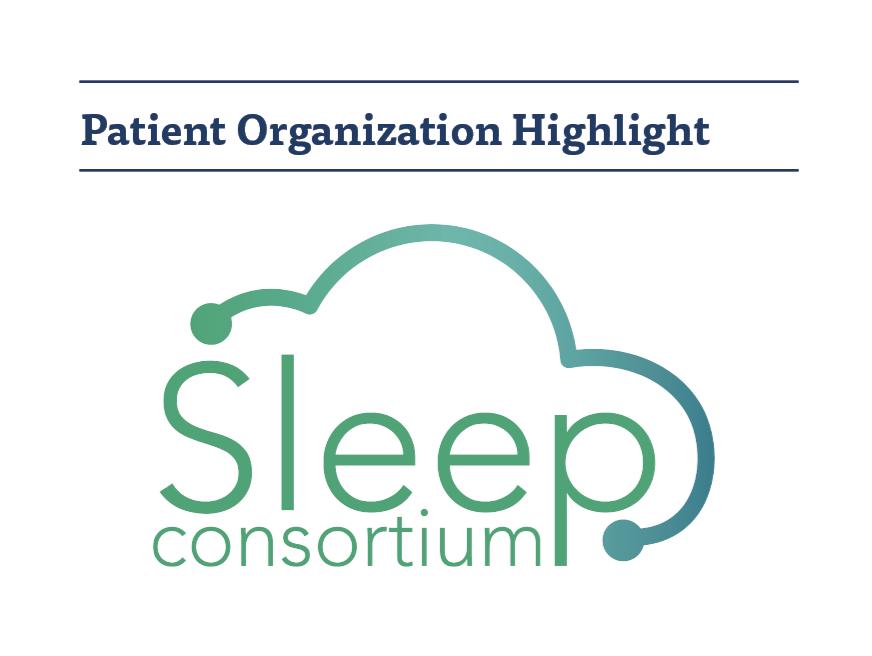Founded in 2021, Sleep Consortium is a nonprofit organization created to accelerate next-generation research, disease understanding, and therapy development for those living with central disorders of hypersomnolence (CDoH) and other related sleep disorders. These disorders of hypersomnolence include narcolepsy, idiopathic hypersomnia, and Kleine-Levin syndrome.
Cofounders Lindsay Jesteadt and Claire Crisp note that “Sleep Consortium was designed to serve at the intersection of the various roles that support the broader sleep ecosystem” (e.g., industry, researchers, patients, clinicians, patient organizations). Their goal is to accelerate knowledge development through effective patient-owned data collection, data connection, and community pooling of data, with a responsible and respectful structure to enable the entire network to thrive. Jesteadt expresses that “this type of precompetitive collaboration brings together multiple stakeholders to overcome a common barrier or develop a solution that allows them all to benefit, just as a rising tide lifts all boats.”
Partnering with RARE-X, a collaborative platform for global data sharing and analysis, Sleep Consortium is working to unburden patients while making the task of data collection easy and accessible for the sleep community. Through ethical data-sharing practices, leveraging artificial intelligence (AI) and machine learning, Sleep Consortium is reimagining data collection in sleep medicine by collecting, interconnecting, and federating data. Supported by leading researchers, industry partners, and patient advocacy groups, the patient data collection portal will launch in early 2023 and will allow patients and family members to assist in accelerating research by sharing their data. This patient-reported data will also live alongside other consented, robust data sets from registries and academic and clinical institutions globally. At present, patient-reported outcomes measures are insufficient and detailed registry data is lacking. It will take a collaborative effort to create a sleep ecosystem that is abundant in meaningful data.
Patients will be able to share their consented data with global researchers, clinicians, and drug developers to advance research in CDoH and accelerate the development of new targeted therapies in this precompetitive space. The data collection portal will also serve to connect interested patients with qualifying clinical trials and studies to accelerate knowledge and future treatment options.
Jesteadt ends by adding, “We are empowering patient communities as the patient is indeed the expert when it comes to their symptoms and they should play an active role in identifying meaningful benefit…Perhaps, what is meaningful to the pati ents cannot be represented in numbers from current scales alone.”
ents cannot be represented in numbers from current scales alone.”
For more information visit: sleepconsortium.org



